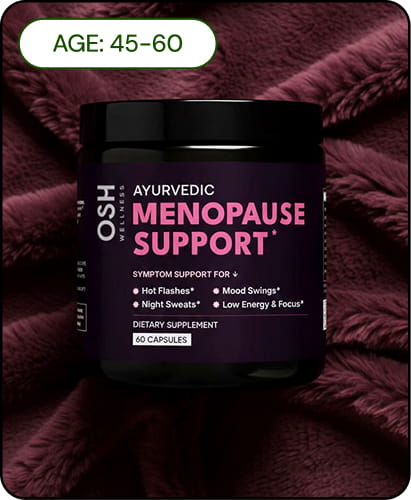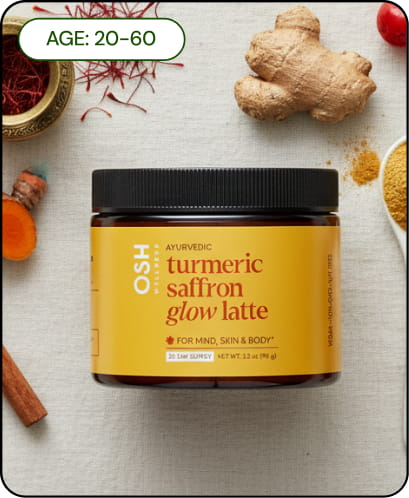Table of contents
Folate, also known as vitamin B9, is a crucial nutrient that plays a vital role in various bodily functions. Folic acid, the synthetic form of folate, is commonly used in supplements because of its affordability. Premium supplements use 5-MTHF (5-Methyltetrahydrofolate), which has higher bioavailability and a better absorption rate.
The benefits of folate are numerous, particularly for pregnant women, as it helps prevent neural tube defects in developing fetuses. Folate is also essential for red blood cell formation, DNA synthesis, and cell growth. While folate can be obtained through a balanced diet, many individuals, especially those who are pregnant or planning to become pregnant, may require folate supplements to ensure adequate intake.
5 Amazing Health Benefits of Folate

Folate, a water-soluble B vitamin, offers numerous health benefits for individuals of all ages. Here are five remarkable folate benefits that can improve your well-being:
1. Supports Fetal Development
Adequate folate intake is crucial during pregnancy, as it helps prevent neural tube defects in the developing fetus. It also contributes to the healthy growth and development of the baby's brain and spinal cord.[1]
Osh Wellness Elite Prenatal contains 1000 mcg DFE folate along with other essential vitamins and nutrients to support a healthy pregnancy and fetal development.
2. Reduces the Risk of Heart Disease
Studies have shown that folate can help lower homocysteine levels in the blood [4], a risk factor for heart disease. By reducing homocysteine, folate may help prevent the buildup of plaque in the arteries, lowering the risk of heart attacks and strokes.
3. Boosts Red Blood Cell Formation
Folate plays a vital role in the production of red blood cells, which are responsible for carrying oxygen throughout the body. Adequate folate intake can help prevent anemia [5], a condition characterized by a lack of healthy red blood cells.
4. Supports Brain Health
Folate has been linked to improved cognitive function and a reduced risk of age-related cognitive decline [6]. It may also help alleviate symptoms of depression and improve mood.
5. Promotes Healthy Cell Growth and Division
Folate is essential for the proper growth and division of cells throughout the body [7]. It helps maintain healthy skin, hair, and nails, and may also play a role in cancer prevention.
To ensure optimal folate levels, it is recommended to consume a diet rich in folate-containing foods, such as leafy green vegetables, citrus fruits, beans, and fortified grains. For those who may not be able to meet their folate needs through diet alone, folate supplements can be an effective way to boost intake.
Folate-Rich Foods to Enhance Your Dietary Intake

When looking to boost folate intake through dietary sources, incorporating foods rich in this essential nutrient is key. Here are some of the best natural sources of folate:
- Leafy Greens like Spinach, asparagus, and Brussels sprouts are excellent natural sources of folate
- Legumes contain significant amounts of folate. Lentils, chickpeas, and black beans are some legumes that are easy to add to your diet.
- Avocado and Broccoli are also good sources of folate and can be consumed in many forms.
- Citrus Fruits like oranges and grapefruit have folate along with abundance of Vitamin C
- Whole Grains can further enhance folate intake. Whole grains like brown rice, quinoa, and whole wheat bread are good sources of natural folate.
- Nuts like almonds, walnuts, and pecans are rich in folate, but must be consumed in moderation due to their high fat content.
By diversifying your food choices and including these folate-rich options, you can support overall health and potentially benefit from the nutrient's positive effects, especially during pregnancy.
5-MTHF Folate vs Folic Acid


5-MTHF Folate and Folic Acid are two forms of vitamin B9 supplements available, with the latter being more common in mass supplements due to their synthetic nature and affordability.
However, folic acid needs to undergo a four-stage enzyme transformation process to become the bioavailable Folate - 5-MethylTetraHydroFolate (5-MTHF), which the body can then absorb.
The absorption of 5-MTHF folate and folic acid differs significantly. 5-MTHF is absorbed more efficiently, with an absorption rate of up to 7 times more than Folic Acid [2]. Taking a higher dose of folic acid is not a good alternative as it may lead to unmetabolized folic acid in the blood, which may have potential health risks.
Elite Prenatal contains premium 5-MTHF folate along with 25 other vitamins and nutrients, making it one of the most comprehensive and highest quality prenatal available. The human body can readily use 5-MTHF without the need for enzyme transformation, making it a more effective option for pregnant women and those seeking the benefits of vitamin B9.
For pregnant women, folate is crucial for the healthy development of the fetus, and Elite Prenatal provides the necessary dosage to support this critical need, ensuring that expectant mothers receive the essential nutrients required for a healthy pregnancy. Adequate folate intake before and during pregnancy can reduce the risk of neural tube defects by up to 70%.
Optimum Dosage of Folate
The recommended daily intake of folate varies depending on age, gender, and life stage. For adults, the general recommendation is 400 micrograms (mcg) of dietary folate equivalents (DFE) per day. However, for pregnant women, this requirement increases to 600-1000 mcg DFE [3] to support fetal development and prevent birth defects. Folic acid supplements, the synthetic form of folate, often require a higher intake due to differences in absorption compared to natural folate.
5-MTHF folate’s higher bioavailability makes it a superior choice for supplementation compared to folic acid, especially before and during pregnancy. Elite Prenatal contains 1000 mcg DFE of 5-MTHF folate, making it an ideal choice when you are looking for a prenatal supplement.
Conclusion
Folate is a crucial nutrient, plays a vital role in various bodily functions, particularly during pregnancy. Folate supplements, especially those containing 5-MTHF, offer higher bioavailability and better absorption rates compared to folic acid. Elite Prenatal, with its premium 5-MTHF folate, provides a comprehensive and high-quality prenatal supplement for expectant mothers. Adequate folate intake before and during pregnancy can significantly reduce the risk of neural tube defects, making it essential for a healthy pregnancy.
FAQs
Do I need to take folate after giving birth?
Yes, it is recommended to continue taking folate supplements after giving birth, especially if you were taking them during pregnancy. Folate helps in the postpartum period by supporting the recovery of the uterus and preventing complications such as postpartum depression. Consult your healthcare provider for personalized advice on the appropriate dosage, as the recommended amount is 500 mcg (0.5 mg) per day while breastfeeding as babies get folic acid from breast milk.
What are the benefits of folate when not pregnant?
Folate, also known as vitamin B9, plays a crucial role in maintaining overall health beyond pregnancy. It helps produce healthy red blood cells, ensuring proper oxygen circulation in the body. Without sufficient folate, the body can produce abnormally large red blood cells, leading to folate deficiency anemia, characterized by fatigue and other symptoms.
Does folate help you when trying to conceive?
Folate does not directly help you get pregnant. However, it is highly recommended to take adequate quantity of folate before pregnancy to build folate reserves in your body. It helps reduce the risk of neural tube defects and supports fetal development.
What does folate do for reproductive health?
Folate, also known as vitamin B9, plays a crucial role in reproductive health. It helps prevent neural tube defects in developing fetuses during pregnancy, ensuring healthy fetal development. Additionally, folate supports the production of red blood cells, which is essential for proper oxygen circulation. It also helps alleviate symptoms of depression and anxiety during pregnancy.
What is the most absorbable form of folic acid?
The most absorbable form of folic acid is 5-Methyltetrahydrofolate (5-MTHF). This form of folic acid is more easily absorbed by the body compared to folic acid, which needs to undergo a four-stage enzyme transformation process to become bioavailable.








